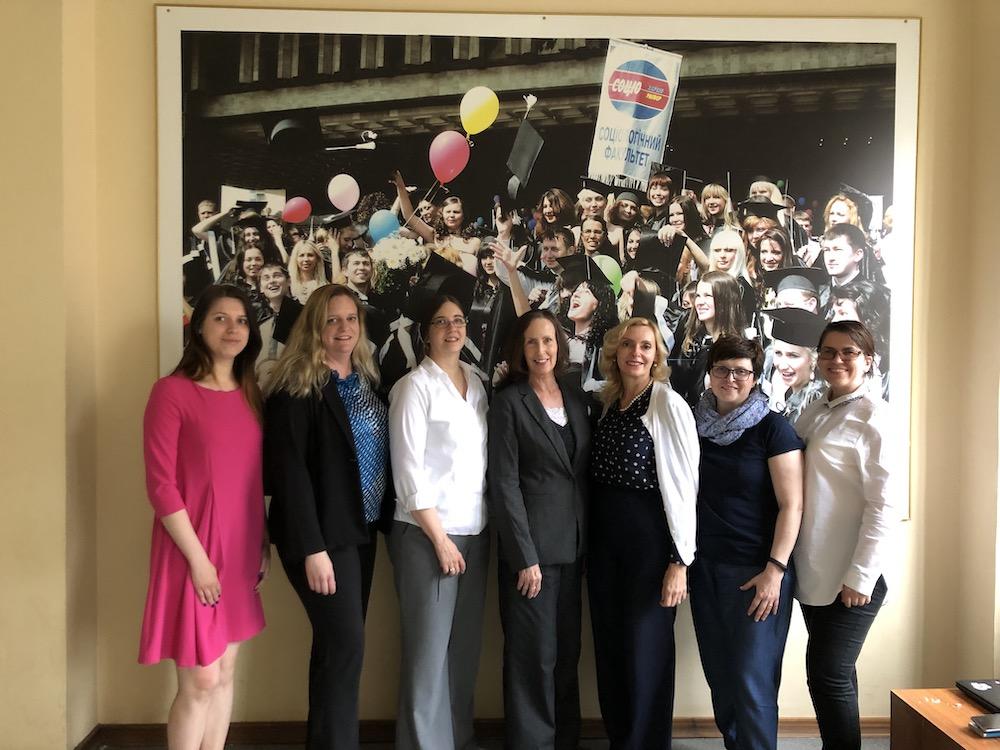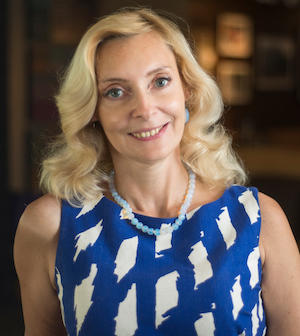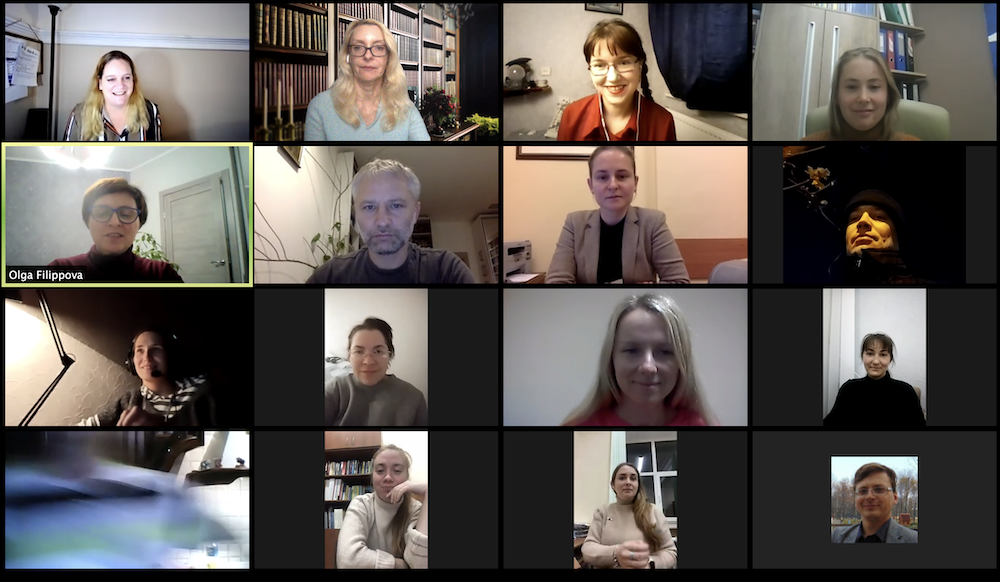In This Story
The eastern region of Ukraine has been an intense battleground since 2014, when Russia controversially annexed the Ukrainian peninsula of Crimea and invaded the Donbass region in eastern Ukraine. Though a ceasefire was called, it has been violated daily. More than 10,000 people have died and roughly 1.6 million are registered as internally displaced people (IDP).
But a step toward hope and peace may be on the horizon, thanks to George Mason University’s Carter School for Peace and Conflict Resolution, and their new project funded by a $50,000 grant from the U.S. Embassy in Ukraine.
“While we were working on [another U.S. Department of State-funded project introducing conflict resolution curricula in Ukraine], we were envisioning what else can be done,” said Carter School professor Karina Korostelina, who is spearheading the project with Associate Dean Julie Shedd and associate professor Mara Schoeny. “While conflict resolution can be used in schools, the major issue is conflict within the society.”
One important issue in Ukrainian society is the inclusion and rights of IDPs.
“People who work in local administration have a lot of knowledge, but don’t know how to deal with IDPs, how to negotiate conflicts, how to use a problem-solving approach to conflict resolution,” Korostelina said.
That’s where Mason’s project comes in.
Faculty from the Carter School will be educating professors in Ukraine on conflict resolution best practices, so they can create a course to teach their own students in Ukraine. The project will also establish an internship program for undergraduate students at three Ukrainian universities, which were selected because their locations host the highest numbers of IDPs.
“We educate and teach students how to become agents of change in their communities,” Korostelina said.
About 15 students per university will intern with local administrations and NGOs that work with IDPs or community development projects. The goal is that these students will bring their newly learned skills to their internship.
The experiential learning equips students with skills to be leaders in society, and could potentially lead to jobs at these organizations after graduation, Korostelina said. It also reinforces values of tolerance, diversity, and inclusion.
“I strongly believe in education as one of the keys for conflict resolution,” Korostelina said. “The more people are aware of how conflict functions and what factors contribute to it, the less they actually become the subject of manipulation in conflict dynamics.”
It’s an ambitious project, she said, but it originates from Mason’s previous successful projects in the region.
“The Carter School, in its 40-year history, has always been an active actor in peacebuilding internationally, and this project is just the latest example of our substantial footprint for peace and justice across the world,” said Carter School Dean Alpaslan Özerdem. “Such a groundbreaking collaborative initiative between universities and NGOs through university students’ engagement is an excellent way of training future peacebuilders across the world.”
The project could also enable Ukrainian faculty to contribute more research in the conflict resolution field, and help communities address conflict more effectively, Korostelina said, adding that she hopes the model could be replicated around the world.
“People have to understand and acknowledge the importance of conflict resolution education,” she said. “What is great about our project is we bring knowledge to regions, which were not exposed to this knowledge before.”



